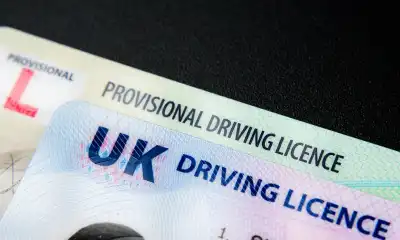
Deciding whether to bring your car to university can be a tough choice, especially if you’re new to driving. Depending on where you’re studying, having a car might end up being more hassle than it’s worth.
Let’s break down the pros and cons of taking your car to uni and explore some alternatives.
Pros of taking your car to uni
1. Convenient Travel:
If you’re far from home, public transport can be a real pain—multiple connections and delays can turn a simple trip into an ordeal. With your car, you can drive home easily whenever you want, which can be less stressful and potentially cheaper.
2. Easy access to essentials and events:
In big cities, you might not need a car for daily errands, but if your uni is in a smaller town, having a car makes it easier to run errands and attend events or trips.
3. Simplified Commuting:
If you work part-time and your job isn’t close to campus, driving can be a time-saver compared to relying on public transport, leaving you with more time to study.
Cons of taking your car to uni
1. Costly Expenses:
Owning a car isn’t cheap, especially for young drivers. Besides insurance, which averages around £1,229 you’ll need to budget for:
- Car tax
- Fuel
- MOT
- Parking
If you don’t use your car much during the term, these costs might not be worth it.
2. Parking Issues:
Campus parking can be limited and expensive. Annual permits can cost around £180, and larger cities might charge more. Some universities don’t allow parking at all or have strict regulations, so it’s essential to check your university’s parking policies.
3. Becoming the designated driver:
Having a car might mean you become the go-to person for rides, which can be a bit of a drag if your friends are constantly asking for lifts.
What to consider if you take your car
1. Budget for car costs:
Include car expenses in your budget. Unexpected costs like repairs or fines can quickly drain your funds.
2. Update your insurance:
Let your insurer know you’ll be keeping your car at a new location. This can affect your insurance premium.
3. Check parking options:
Find out if you can get a parking permit on campus or if there are alternative parking options nearby.
4. Secure your car:
Consider adding an alarm or immobiliser for added security, and think about visual deterrents like a steering wheel lock.
Alternatives to taking your car
1. SORN (Statutory Off Road Notification):
If you won’t be using your car for a while, you can declare it off the road with a SORN. This means no insurance, tax, or MOT is required, but you’ll need to sort these out if you decide to use the car again.
2. Temporary car insurance:
If you’re only home for short breaks, consider temporary insurance for your parents’ car. This usually costs around £183 for a week and won’t affect the car’s existing insurance.
3. Named driver:
Becoming a named driver on a family member’s policy lets you use their car occasionally. However, this can increase their insurance costs and potentially impact their no-claims bonus if you’re involved in an accident.
4. Use public transport or bike:
In many cases, relying on public transport, biking, or car-sharing options can be more cost-effective and convenient than having a car at uni.
Choosing whether to take your car to university depends on your individual needs and circumstances. Weigh the costs and benefits carefully to make the best decision for your situation.




